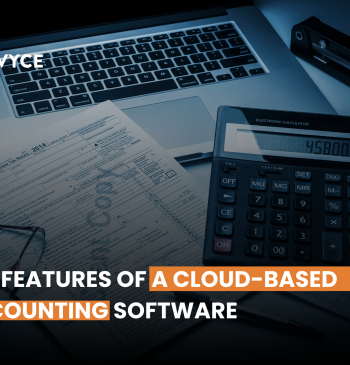29 Aug

Running a business is full of exciting challenges, but it’s easy to overlook a important element: managing your finances. Managing your finances well is key to the success of your business, and this is where bookkeeping plays a vital role. Bookkeeping isn’t just a routine task—it’s a fundamental practice that helps keep your business on solid ground, ensuring you’re prepared for growth and sustained success. Whether you’re an experienced business owner or just getting started, appreciating the value of bookkeeping will allow you to make smarter decisions that benefit your business.
Let’s explore seven important reasons why you should focus on bookkeeping to keep your business on track.
1. Helps You Budget Accurately
Budgeting is the foundation of any successful business. It’s like having a financial GPS that helps you manage the complexities of running a business, ensuring that you direct resources where they’re needed most. However, your budget is only as good as the data you use to create it. This is where accurate bookkeeping comes in.
When your income and expenses are carefully recorded and organized, you can see your financial landscape clearly. This clarity allows you to create a realistic budget reflecting your business’ financial position. Instead of relying on guesswork, you can make informed decisions that help you plan for future expenses, manage cash flow, and invest in growth opportunities.
How It Work for You?
To utilize the power of budgeting through bookkeeping, start by categorizing your expenses and tracking your income streams regularly. Use this data to identify spending patterns and estimate future expenses. The more detailed and accurate your bookkeeping, the more reliable your budget will be, allowing you to make strategic decisions that help move your business forward.
2. Keeps You Prepared for Tax Season
The tax season is a stressful time for every business owner. The approaching deadlines, the pressure to find every tax-deductible expense, and the uncertainty of an HMRC audit can keep you up at night. But with proper bookkeeping, tax season doesn’t have to be a nightmare.
By keeping your financial records up to date throughout the year, you’ll be fully prepared when it’s time to file your taxes. Instead of scrambling to gather documents at the last minute, you’ll have everything you need at your fingertips. This not only makes the tax filing process smoother but also ensures that you’re compliant with tax regulations, reducing the risk of penalties.
How It Works for You?
To stay on top of your taxes, make it a habit to record all financial transactions as they happen. Categorize your expenses, track your income, and keep detailed records of all deductible items. Use accounting software that integrates with your bookkeeping system to automatically generate reports and financial statements. When tax season rolls around, you’ll be ready to file your returns confidently and without stress.
3. Maintains Organized Records
You need a specific financial document the day before an important meeting. You frantically search through piles of paperwork, but it’s nowhere to be found. This kind of last-minute scramble can lead to missed deadlines, errors, and a whole lot of unnecessary stress. The solution? Regular bookkeeping.
Keeping your books in order means you’re always organized and ready to find the information you need when you need it. The purpose of this level of organization isn’t just to prevent confusion, but to make your business run smoothly and efficiently. Whether you’re preparing for a meeting, applying for a loan, or undergoing an audit, organized records make the process faster and less stressful.
How It Works for You?
Set aside time each week to update your books. This could involve recording transactions, reconciling accounts, or categorizing expenses. Over time, you’ll build a comprehensive and organized record of your financial activities, making it easy to access crucial information at a moment’s notice. Plus, when everything is in its place, you’ll feel more in control and less overwhelmed by the day-to-day demands of running your business.
4. Makes It Easier to Set and Achieve Business Targets
Every business owner has goals—whether it’s expanding into new markets, increasing revenue, or launching a new product line. But without accurate financial data, setting realistic targets can be a challenge. If your records are incomplete or disorganized, you’re essentially guessing when it comes to planning for the future. As we all know, guessing doesn’t always work.
Accurate bookkeeping provides the financial clarity you need to set achievable business goals. By analyzing your financial data, you can identify trends, measure performance, and set realistic targets that align with your business’s capabilities. With a clear financial picture, you can also track your progress toward these goals and make adjustments as needed to stay on course.
How It Works for You?
Use your bookkeeping data to create financial reports that reflect your business’s current performance. Analyze these reports to identify areas where you can improve, whether it’s cutting costs, increasing sales, or investing in new opportunities. With this information, set specific, measurable, and realistic goals for your business. Regularly review your progress and use your financial data to make informed decisions that keep you on track.
5. Helps You Comply with Government Regulations
Staying compliant with government regulations is non-negotiable for any business. But let’s be real—regulations are constantly evolving, and keeping up with them can be a challenge. The government’s latest initiative, Making Tax Digital (MTD), is a perfect example. MTD requires businesses to keep digital records and submit their tax returns online using compatible software.
Compliance isn’t just about avoiding penalties; it’s about protecting your business’s reputation and ensuring its long-term viability. With proper bookkeeping, you can easily meet these regulatory requirements and avoid the stress and financial consequences of non-compliance.
How It Works for You?
Invest in bookkeeping software that complies with MTD and other relevant regulations. Regularly update your financial records to ensure they meet government standards. If you’re unsure about the regulations that apply to your business, consider consulting with an accountant or legal expert. By staying compliant, you’ll not only avoid penalties but also build a solid foundation for your business’s future growth.
6. Gives You Extra Peace of Mind
It is challenging enough to run a business without having to worry about disorganized finances. It’s difficult to focus on what really matters-growing your business-when you have unpaid bills, approaching tax deadlines, and the threat of an audit looming over your head. But when your books are in order, you can breathe easy, knowing that your finances are under control.
Proper bookkeeping gives you the peace of mind that comes with knowing your financial house is in order. You’ll sleep better at night, confident that your business’s financial information is accurate, up to date, and ready for review whenever needed. This peace of mind frees you to focus on other areas of your business, from innovation to customer service, without the constant worry of financial issues lurking in the background.
How It Works for You?
Make bookkeeping a regular part of your routine, just like checking your email or attending meetings. By dedicating time each week to managing your finances, you’ll stay on top of your books and avoid the stress of last-minute financial crises. The more consistent you are, the more peace of mind you’ll gain, allowing you to focus on what you do best—running your business.
7. You Learn Valuable Financial Skills
Bookkeeping isn’t just a task you need to get done—it’s an opportunity to learn and grow as a business owner. Whether you’re new to bookkeeping or a seasoned pro, managing your business’s finances gives you valuable insights into how your business operates. Over time, you’ll develop a deeper understanding of your cash flow, profit margins, and overall financial health.
This knowledge is incredibly empowering. The more you learn about your finances, the better equipped you’ll be to make informed decisions that drive your business’s success. And in today’s digital age, there are plenty of resources available to help you improve your bookkeeping skills, from apps and software to online courses and workshops.
How It Works for You?
Start by taking advantage of the tools and resources available to you. Use bookkeeping software that offers tutorials and support, attend free workshops or webinars, and read up on best practices. As you gain confidence in your bookkeeping abilities, you’ll start to see the bigger picture and how every financial decision impacts your business. This ongoing learning process will make you a more effective and knowledgeable business owner.
Conclusion
Bookkeeping is more than just keeping track of numbers; it’s about maintaining the financial health of your business. From helping you create accurate budgets and staying prepared for taxes to ensuring your records are organized and your business goals are achievable, bookkeeping is a key element in driving your business forward. By making bookkeeping a priority, you’ll not only stay compliant with regulations but also gain peace of mind, knowing your finances are in order. This solid financial foundation allows you to focus on what truly matters—growing your business and achieving long-term success.
Marjina Muskaan has over 5+ years of experience writing about finance, accounting, and enterprise topics. She was previously a senior writer at Invyce.com, where she created engaging and informative content that made complex financial concepts easy to understand.
Related Post
Copyright © 2024 – Powered by uConnect



Marjina Muskaan